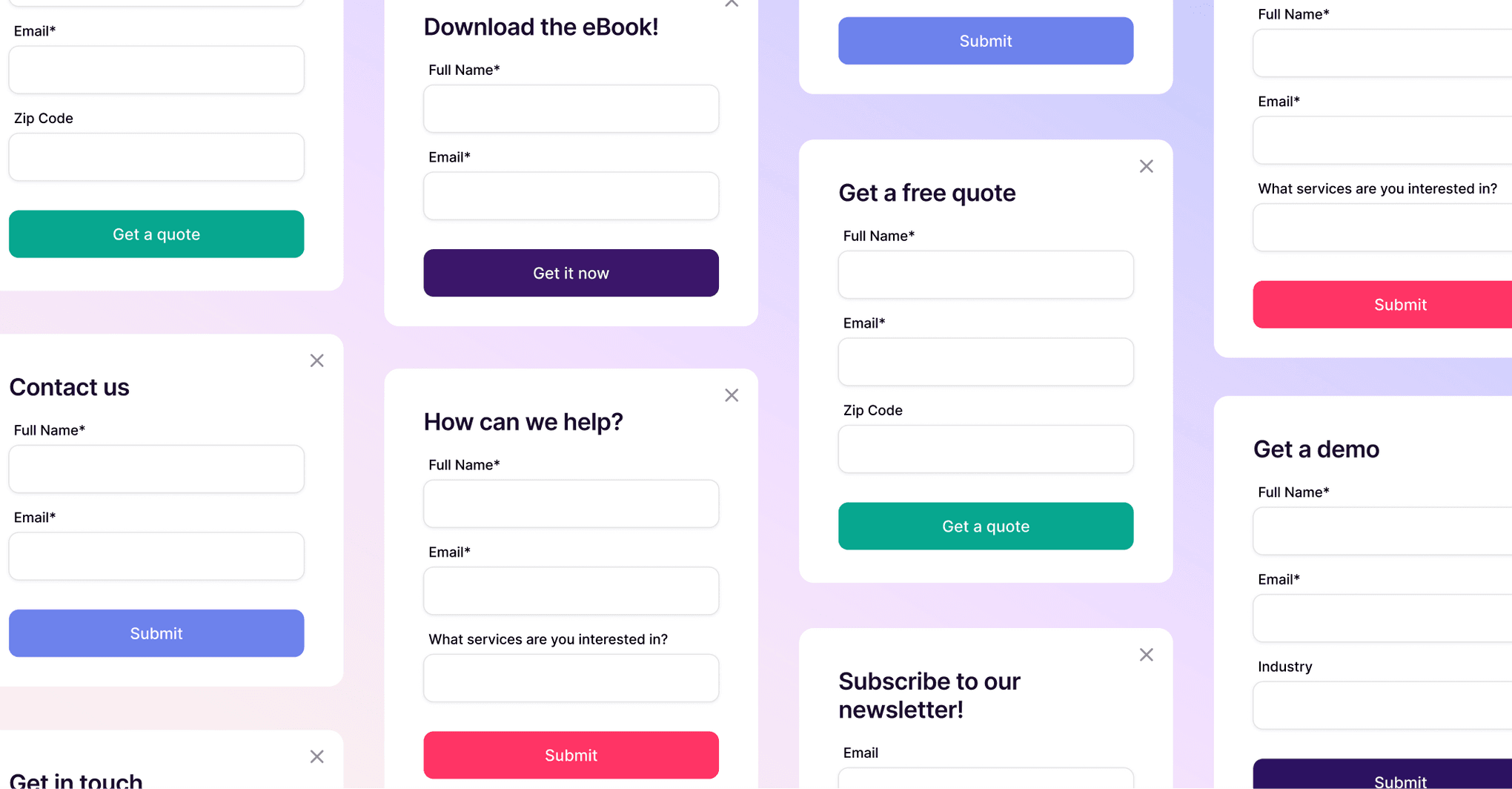Grace Sweeney
Contributor
Key takeaways
Startups benefit from CRM systems that offer maximum utility at affordable prices, with basic plans starting around $25 per month to automate data entry and pipeline management without breaking limited budgets.
CRMs break down departmental silos by centralizing customer data from marketing, sales, and customer service teams, enabling startups to make faster decisions and deliver more relevant customer experiences.
Copper CRM's native Google Workspace integration automatically captures emails, contacts, and calendar events directly within the CRM, eliminating manual data entry for startups already using Gmail and Google Calendar as their primary tools.
Real-time reporting and forecasting features help startups track sales quotas, identify winning patterns, and create repeatable sales strategies that scale as the company grows from seed funding to larger operations.
It doesn’t matter if you’re a Fortune 500 company, a modest mom-and-pop, or a startup—you need a CRM (customer relationship management) and software to manage your relationships and track deals from prospect to purchase.
Startups, in particular, benefit considerably from moving customer data into a CRM (customer relationship management) and software. But, many people still believe that CRMs are only for companies with big names and budgets to match, and that none will work as a small business CRM. That misconception leads to small teams skipping out on the software and technology that stands to help them and their business most: saving time, streamlining strategy, and recording a ton of actionable data.
Startups are staring down a 90% failure rate. A CRM for marketing campaigns can help businesses address several challenges, including:
- Building a brand - CRMs offer greater transparency between departments; creating a unified view that includes marketing, customer service, and sales.
- Pitching to angels, sharks, and VCs - CRMs keep track of communications from initiation to close.
- Managing finances - CRMs can offer sales reports, forecasting, and the ability to track sales goals against actual conversions.
And that’s before you even consider the most important aspect of any business: the customer.
Today’s CRMs help startups nurture relationships, get organized, and grow a loyal customer base from scratch. The benefits are clear for customer relations, but choosing a CRM is a big decision.
Here are the top six things startups should look for in a CRM and marketing campaigns:
1. Most bang (utility) for your buck
Most startups don’t have tons of cash to throw at new apps and hope for the best.
But you can’t afford not to have a CRM either to gain positive customer data. For one, CRMs promise faster sales cycles and better customer retention: two key ingredients for growth.
And customer relationship management is one of the most important things a company can invest in.
Gartner predicts companies will primarily compete on customer experience within the next few years. So, newcomers need to get cracking on building powerful experiences well before they launch. And they’ll need data to get it done.
A CRM is more than a contact management center. Consider it a way to collect Voice of the Customer feedback, spot trends, and gain insights about customer relations that can power up your marketing and sales strategies.
But, back to the price of a small business CRM.
You’ll want a CRM for software tool that combines utility with flexibility at a reasonable price. So, watch out for customer relationship tools that cost hundreds per month and come with too many features that you won't use.
CRMs range from the free to the wildly expensive. While you could blow your Series A money on one overpowered CRM for software tool built for the likes of Amazon, you should find an affordable option that offers insights early on, plus the ability to upgrade as you grow.
Start small. Copper’s basic CRM platform plan, for example, is $25 a month. This allows you to get a feel for the customer support tool and automate a few CRM tool tasks that belong firmly in the last century such as data entry, manual reporting about potential customers and customer interaction (such as live chats), and managing your sales pipeline.
2. Collaboration between departments
For startups, the ability to collaborate to get strong CRM data is crucial. Because this space demands innovation—and the “fail fast” approach that goes with it—pooling data into one central hub means delivering a better experience for customers and integration. Marketing teams have demographic info about potential customers that Sales teams might not otherwise look at. Sales teams have personal relationships with clients that Marketing can use to tailor their messaging efforts better.
Customer service reps and social media managers, too, can add more CRM data and details about a client, particularly complaints and frequently asked questions.
When every team has the full picture for a CRM system, startups can be more efficient. All of these role-based interactions can be stored in a CRM.
Breaking down those silo walls allows for a holistic view of all touchpoints. In turn, startups can quickly make decisions aimed at keeping things relevant to customers.
3. It gets along with your existing tech stack
Inputting records into a database and digging around in your files can be a waste of time, especially when you’re doing it every day. What if you had one program and CRM platform that could do all of this for you?
CRMs must provide more than contact management. The goal here is to ease the burden of using too many apps that tie into customer support. Which, if you’ve ever juggled multiple project management tools and chat apps, plus email, you know the pain of.
According to Marketing Week, companies that made integration a priority were more likely to be “growth drivers.”
We think they’re on to something.
When you combine email, chat, reporting, and lead tracking, it's easier to get the full picture. Data from touchpoints like meetings and calls help you recall past interactions and build relationships with a bevy of information at your disposal.
If you can see sales notes linked to deals in progress and know who customers talked to in the past, you can anticipate issues with customer interactions and avoid re-explaining things. No more scrambling for documents ahead of a call or trying to recall the notes from your last call (because you lost them again).
Again, a CRM offers some relief. That ability to shave a few minutes off a handful of tasks each day gives you more time to make meaningful connections using CRM for startups.

Pro-tip
Be a CRM pro.
To learn more about how tech companies can use CRMs, grab this free CRM Best Practices Guide.
4. Detailed, real-time customer records
Startups benefit from the relationship-building aspect of a CRM tool and CRM software immensely. Syncing with your emails, accounting tools, and calendar, keeping records updated, in real-time; CRMs ease the burden on startup pros juggling multiple roles.
Detailed records can both inform your marketing plan and build a winning sales strategy to earn customer loyalty.
A company’s aim is typically to create something that adds value to customers’ lives. And the only way to ensure you’re adding value and coming up with a CRM solution is to understand what resonates with your audience.
But, you’ll need to keep your leads, events, and more organized and accessible. That’s where a CRM comes in, allowing you to add notes from sales calls and client interviews to a central hub with purchase histories, appointments, and company details—a rich dataset with considerable opportunities.
In the early stages of a startup, you have arguably the biggest shot at having real conversations with your audience about your product, services, and shortcomings, which helps with customer loyalty.
Take this chance to conduct extensive market research and establish the buyer personas that serve as the starting point CRM solution for your outreach efforts.
From there, segment your audience and create content specifically for those groups.
Segmented records also help sales teams prioritize the hottest leads and schedule follow-ups with existing customers. Without detailed records, reps risk wasting time on low-quality leads unlikely to buy. CRMs enable you to nurture relationships and close deals, so you don’t run out of steam chasing down ice cold prospects.
5. Forecasting and reporting is a breeze
Companies are swimming in data, but don’t know what to do with it. And when you’re operating on a budget, you don’t always have the resources to get an experienced data scientist on the case.
That’s why reporting should be as fast and easy as possible, because of CRM software. In today’s Relationship Era, companies need to access data from multiple channels to inform sales and marketing goals.
Track everything from sales quotas and sent emails to proposals sent and meetings booked. All of these little items can reveal what your team is doing well—or not.
Once you’ve been using your CRM system for a while, you’ll begin to see the patterns that lie within your wins and losses. Startups should look out for a system that features customizable reporting tools. There’s no one list of the perfect KPIs, so you want to select a CRM that lets you decide which metrics to monitor.
While innovation and disruption make for more exciting conversations, detailed reporting adds a ton of tangible value. Especially, when it’s organized in a way that’s easy to analyze.
Additionally, your CRM should make it easy to create a sales funnel that allows you to accurately forecast sales and plan ahead.
6. Can it grow with you?
While you’re (hopefully) not going to marry your CRM, you should still invest the time, energy, and cash in a system that’s in it for the long haul. As a startup, you want a system that can support you while you secure seed funding and later when you’re managing a small country’s worth of sales reps.
Your CRM should help you scale. Records and reports, again, reveal insights needed to inform your sales strategy. You’ll be able to access historical data, create a repeatable sales strategy, and review the results when you try something new.
As you scale, you’ll need more features— perhaps more advanced reporting or the ability to track goals and record phone calls.
Invest in a CRM before it’s obvious that your startup needs one.
How many calls, on average, does it take to close a sale? Which social media channels bring in the most traffic? How many people complained about a new feature?
Understanding these insights helps you develop an informed sales strategy and marketing plan, and forecast more accurately. And hey, that extra organization should bode well with potential investors.
Most CRMs allow you to take a test drive before you buy. Try a few options to see what works for you. For example, Copper lets you try it out for 14 days—no credit card required, and nothing to lose.






